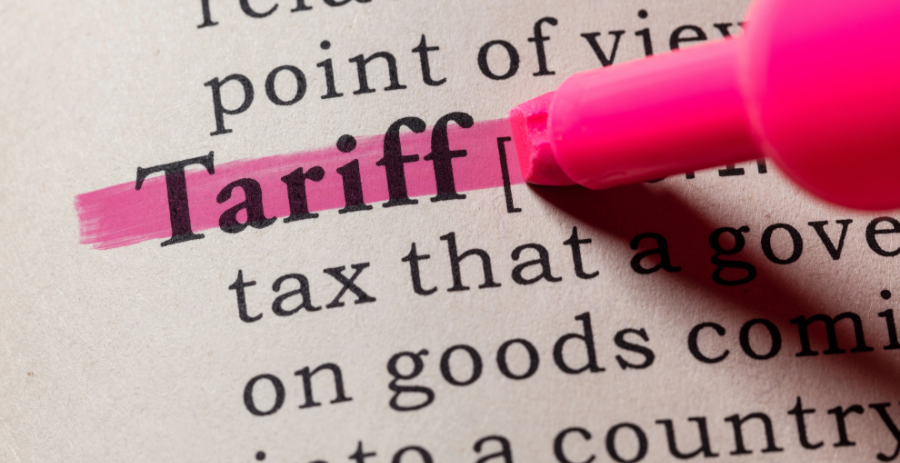New tariffs would have a substantial impact on America and on world trade at large. (Photo by Devon from Depositphotos.)
Any veteran B2B journalist learns early on how to read between the lines.
When you ask someone about how their market is going and you hear, “We saw the people we needed to see,” you know that’s code for traffic was off and our regular customers were pretty much the only people we saw.
Likewise, when someone says, “It’s not the quantity of the traffic, it’s the quality,” that’s code for we spent a lot of time talking to ourselves but did get some business from our regulars.
And so it was at the recent High Point Market where people were finding a whole range of new euphemisms to deflect discussions around tariffs and their potential impact on the furniture business. The two most shared public statements this time were, “it’s business as usual,” and “we’re all in the same boat, so it’s not that big a deal.”
You will see these phrases repeated in almost all the trade press coverage surrounding the market, not because the press is naïve but because we can only report what people say on the record.
See also:
So, in the interest of providing a more accurate and direct overview of where we currently stand as an industry, let me provide some translation. In most instances when company executives say, “it’s business as usual,” what they mean is “we’re not too reliant on China, and we’re hoping that when July 2 rolls around the previously announced tariffs on the Asian countries from which we source will be reduced to a level we can manage.”
Correspondingly, when you read, “we’re all in the same boat so it’s not that big a deal,” what that really means is, “we don’t know exactly what to do and have gone into a holding pattern until the tariff picture becomes clearer. “
To those who might actually believe we’re all in the same boat when it comes to tariffs, I would say this, we can all be in the same boat, but if that boat hits an iceberg, your chance of survival is much better if you’re in first class than if you’re in steerage.
Tariffs do not impact all companies equally. Some have deeper pockets and can minimize price increases to capture market share. Some have more leverage with their factories or, on the retail side, with their suppliers. A furniture chain with 200-plus stores is unlikely to pay the same price as a small independent retailer, whether there are tariffs or not.
Additionally, and this is a big one right now, not everyone is in the same inventory position. One of the big takeaways from the recent market is that many companies on both the retail and manufacturing side have stockpiled inventory and are counting on that inventory to carry them through until the tariff picture becomes clearer.
As inventory levels decline and as tariffed goods (at whatever rate) become critical to avoiding empty floors, there is going to be an industry shakeout. Make no mistake, the industry will survive. That doesn’t mean all its current players will be here to see it.
And that’s no euphemism.
